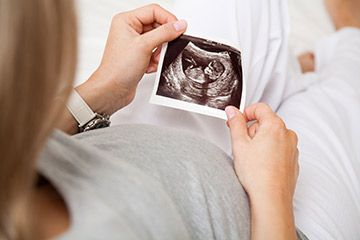Extention of the Rule on Reversed Burden of Proof
20 December 2013
The rule on reversed burden of proof in the Danish Equal Treatment Act is to be extended to also protect an expecting father ahead of his paternity leave. This was established by judgment of 30 August 2013 by the Danish Eastern High Court.
In the specific case, an employee was dismissed on 23 August 2013 while his wife was pregnant. The employer was aware of the pregnancy as the employee in the middle of May or in the beginning of June 2010 had notified his employer thereof. Subsequently, the employee was informed that a 14-day paternity leave was mandatory immediately after the birth, and as such he discussed the scheduling of these days with the employer. However, the possibility of an extended leave was never discussed. Against this background, the Eastern High Court found - without stating a reason - that the rule on reversed burden of proof was applicable to the case.
The employee had received a written warning on 23 June 2010. According to testimonies, the view could be taken that this warning was issued on basis of lack of cooperation which arose back in March/April 2010. A number of specific issues which the employee was to improve on were stated in the warning, and the dismissal was based on the employer's opinion that the employee had failed in this respect.
Moreover, the employer stated to have 60 employees of which 50 were women and that they were all of childbearing age. As such, the employer constantly had 5-6 women on maternity leave.
Against this background, the Eastern High Court found that the company had satisfied the burden of proof that the dismissal was not based on the employee's pending paternity leave.
The judgment casts doubt as to when the rule on reversed burden of proof becomes applicable in that the Western High Court has taken another view, according to which the reversed burden of proof will not apply until after the father has commenced paternity leave. The Danish Board of Equal Treatment has also applied this interpretation. On the fact of it, the wording in the Equal Treatment Act contemplates that the reversed burden of proof is only to apply to a father when he has commenced his leave.
Conversely, the interpretation of the Eastern High Court is somewhat supported by EU law. This is due to the fact that the mother has a right to employ the rule on reversed burden of proof as early as during her pregnancy. As such, in the Colemann case in relation to disability, the European Court of Justice stated that the protection against dismissal due to disability is not necessarily aimed at the employee, but also at the employee's child. Consequently, a protection of the father under the rule on reversed burden of proof could be regarded an extension of the mother's right thereto out of regard for the mother.
According to our information, the judgment has not been appealed against. We will therefore have to await that the Danish Supreme Court at some point will get a chance to consider when the rule on reversed burden of proof will be applicable before the legal position can be considered clarified.
The employee had received a written warning on 23 June 2010. According to testimonies, the view could be taken that this warning was issued on basis of lack of cooperation which arose back in March/April 2010. A number of specific issues which the employee was to improve on were stated in the warning, and the dismissal was based on the employer's opinion that the employee had failed in this respect.
Moreover, the employer stated to have 60 employees of which 50 were women and that they were all of childbearing age. As such, the employer constantly had 5-6 women on maternity leave.
Against this background, the Eastern High Court found that the company had satisfied the burden of proof that the dismissal was not based on the employee's pending paternity leave.
The judgment casts doubt as to when the rule on reversed burden of proof becomes applicable in that the Western High Court has taken another view, according to which the reversed burden of proof will not apply until after the father has commenced paternity leave. The Danish Board of Equal Treatment has also applied this interpretation. On the fact of it, the wording in the Equal Treatment Act contemplates that the reversed burden of proof is only to apply to a father when he has commenced his leave.
Conversely, the interpretation of the Eastern High Court is somewhat supported by EU law. This is due to the fact that the mother has a right to employ the rule on reversed burden of proof as early as during her pregnancy. As such, in the Colemann case in relation to disability, the European Court of Justice stated that the protection against dismissal due to disability is not necessarily aimed at the employee, but also at the employee's child. Consequently, a protection of the father under the rule on reversed burden of proof could be regarded an extension of the mother's right thereto out of regard for the mother.
According to our information, the judgment has not been appealed against. We will therefore have to await that the Danish Supreme Court at some point will get a chance to consider when the rule on reversed burden of proof will be applicable before the legal position can be considered clarified.






